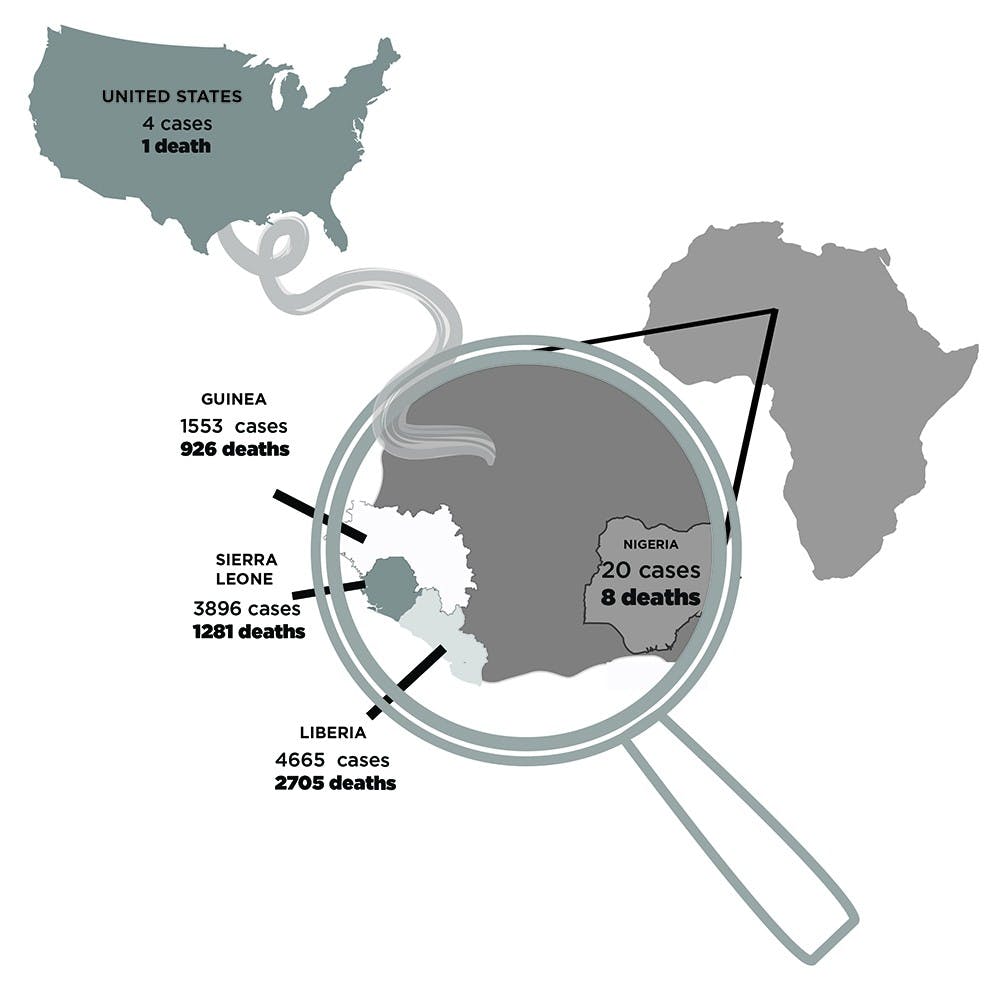For human biology senior Angela Amaniampong , Ebola hits close to home.
The native of Ghana is one of 52 MSU students from West Africa, the disease hit hardest by the virus.
As assistant director of event planning for the African Students Union, Amaniampong attended the ASU meeting Friday night with other s tudents and community members to show her support of 10,114 cases affected by Ebola in the hardest hit West African countries, including Liberia, Guinea and Sierra Leone, as of Oct. 24.
“I thought that African Students Union can do something about it and give back to our countries back home,” Amaniampong said.
The student union will be holding a fundraiser for two to three weeks to raise money assisting the Liberian Association of Michigan to send a 40-foot container of medical supplies to the countries in need in West Africa. Their goal is to raise $5,000.
Chairwoman of the board of directors of the Liberian Association of Michigan Martha Toe said she thinks because of the strong presence of college students on social media, they would be the best people to spread the word out about such an issue.
Toe said a lot of people don’t have correct information about Ebola and when it’s a threat.
“When you say that you come from Africa, people get afraid,” she said. “They think they’re going to get Ebola from just being in your presence.”
According to both the Center for Disease Control and Prevention and the World Health Organization there are four confirmed Ebola cases in the U.S., including one death, as of Oct. 25.
The latest case was confirmed on Saturday. A doctor who just came back to New York City from Guinea was diagnosed with the disease.
Director of Epidemiology and Evaluation at the Michigan Peer Review Organization Harolyn Baker , who spoke to the student union Friday night, said the primary form of transmission is through the contact with bodily fluid of an infected person, including coming in contact with the person’s sweat.
Baker said the symptoms of the disease are similar to that of malaria or that of a flu at its worst.
She said the first symptoms include headaches, nausea, high fever and body aches.
“And then when the virus starts to break through the blood vessels, that’s when you see the red eyes, which is a symptom of (Ebola), and you start bleeding internally,” Baker said.
She said one of the main reasons why people were traveling with the disease and testing negative for it was because Ebola has an incubation time of about 21 days. It then takes about 14 days for a person to either recover from the disease or succumb to it.
Baker said new regulations require those who enter the U.S. from the affected countries to call their health department for 21 days to report their health condition.
Liberia is the hardest hit country, with a total of 4,665 cases of whom 2,705 died, according to the CDC. The disease also affected Nigeria and Senegal, but was contained and officially cleared by the WHO Oct. 20 and Oct. 17, respectively.
Amaniampong, who still has family in Ghana, said the country has not been affected by the disease so far because it has taken strict border regulations when it comes to who can enter the country.
“Right now (my family is) very concerned,” she said. “As of now there are no cases in Ghana; it’s just countries surrounding Ghana, so there is fear, and they’re hoping that it doesn’t come in to our country.”
Baker, who has family in Liberia, said people in Liberia now generally avoid gatherings. She said this has affected the country economically and socially since a lot of people cannot go to work and students can’t go to school anymore.
“So even in the future, when the disease is taken care of, we have societal issues that we have to deal with,” she said. “We have children whose parents have died from Ebola.”
In a statement released on Friday, the WHO said the results of the first clinical trials of Ebola vaccines should be ready by December. Vaccines should then be made available through the pharmaceutical companies developing them in “several thousands of doses” by the first half of 2015 and in “millions of doses” throughout the year.
“Because of the natural course of (Ebola), the likelihood of it hitting its peak and then curbing at some point will happen. We just don’t know when,” Baker said.







